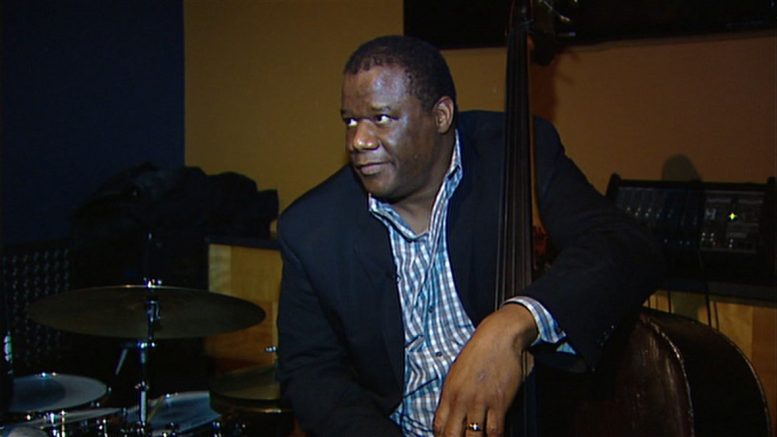A bit of closure came about recently for those following the Steve Kirby story.
Kirby was on leave from the U of M when an internal investigation concluded that several allegations of sexual harassment levied against him were of merit. Kirby left the university with a suspicious lack of publicity, going on to seek employment at Berklee College in Boston. He was only successful in his new position for so long: Kirby’s time at Berklee was rightfully cut short.
When Berklee contacted the U of M regarding Kirby’s status at the university, no mention was made of his gross misconduct. Nevertheless, Kirby was placed on leave by Berklee College on Sept. 14, and eventually fired on Nov. 16.
This deservedly swift, decisive action was not exercised at the U of M during the 2016-17 academic year.
For many students, the university’s administration is especially blameworthy. Students say the failure of the administration to act was in the interest of protecting the university’s image. However, the administration has maintained that Manitoba’s Freedom of Information and Protection of Privacy Act (FIPPA) does not allow it to disclose any information regarding the investigation without the permission of the subject.
In this case, the university requires the permission of Steve Kirby to release the details of its investigation into his alleged sexual assaults. The university, to this day, will not discuss any details, even after dozens of articles have been published. This is extremely frustrating.
As a second-year student studying jazz in the faculty of music, I have a closer perspective than many on how music students felt and continue to feel regarding this situation. Simply put, it has been nothing short of a complete shit show.
We were told Kirby was on leave throughout the winter semester, which we later learned he had applied for six months in advance. After having completed the semester, all students received an email on July 18 in which the dean mentioned that there had been “significant staffing changes” to the jazz program, with no further elaboration. In early August, students then received an email detailing who would be teaching jazz bass majors: an email in which Kirby was never mentioned.
All of us music students were left completely in the dark in this equation – the same students who are paying close to $5,000 a year to be a part of the faculty. Bass students expecting to study with Kirby were taken aback when they were – less than a month before classes began – told they would not be studying with the musician they had been promised. With only a month before classes were set to begin, no other options for education existed for them.
Obviously, it is not an easy situation for anyone to handle – a professor with an immeasurable amount of power is alleged en masse to be sexually harassing students. However, this clearly underlines the importance of having far better fail-safes in place to protect students, and much more transparency surrounding the professors whose salaries we contribute to.
The aforementioned FIPPA can be seen as constricting public knowledge when dealing with delicate and personal data, because that is exactly what it was designed to do. But it does have caveats – over 40 – for situations where private information may be disclosed to the public.
One of those is in section 44(1), clause l, where it states information may be released “where necessary to protect the mental or physical health or the safety of any individual or group of individuals.” By not exercising this allowance, the university has essentially said sexual harassment of this kind is not serious enough to warrant releasing information over.
The administration was in effect saying that it could not care less about protecting the health and safety of the music students at Berklee, who otherwise would have had Kirby as a professor this year. By not releasing this information, the administration not only allowed Kirby to “retire” in peace, but to be hired at another, more prestigious, institution at the drop of a hat.
Had CBC not obtained and published this otherwise private information, Kirby would have likely continued his predatory behaviour at Berklee. It is obvious that both the university and provincial legislation failed students of the faculty of music. The provincial government of Manitoba must take steps to address these failures.
If institutions will not exercise their right to allow the public to view information of this nature under the current system, major reform is needed. Other provinces have already adopted systems of greater transparency within their public schooling systems. British Columbia, Ontario, and Saskatchewan each have their own online teacher databases where anyone can enter a teacher’s name and can see if they have had any type of disciplinary action taken against them by the province.
Manitoba legislators must implement a similar system – both for K through 12 teachers as well as professors – if they hope to revive students’ faith in the system. Had Manitoba already implemented a transparent system like this, the university’s conclusion to their investigation into Kirby would have been made public record, while still keeping victims anonymous: an investigation which found that every single allegation made against Kirby had merit.
In public institutions where professors are paid thousands of dollars every year, in part, by students, along with being subsidized by millions in tax dollars, the public deserves full and complete transparency. More than just holding teachers accountable, a more transparent system will empower teachers to always be performing at their best, and in turn better allow students and parents of students to honour those doing great work.
In the meantime, poor judgement and detrimental mistakes like the ones surrounding Kirby’s case will continue to happen if investigations and their results remain completely private: where very few will truly be held accountable for their actions.



